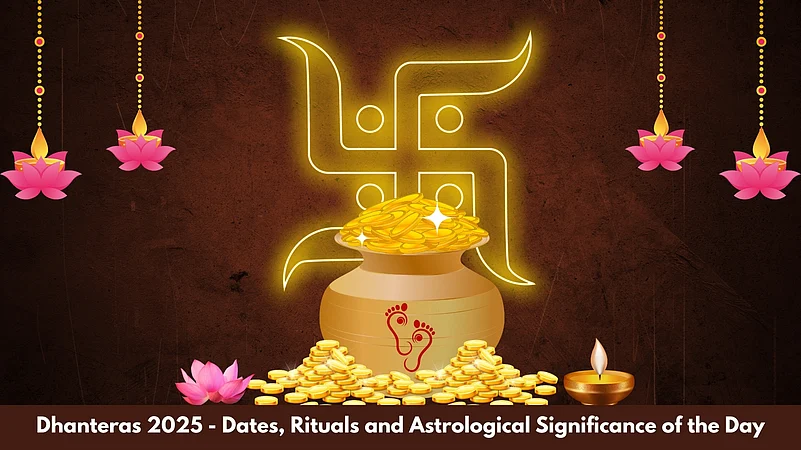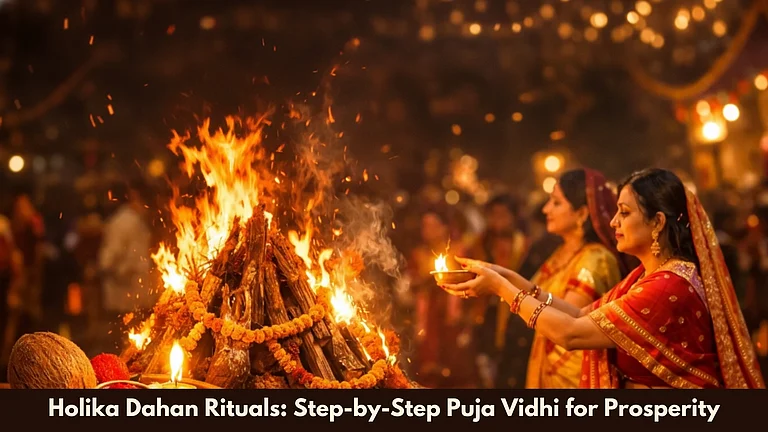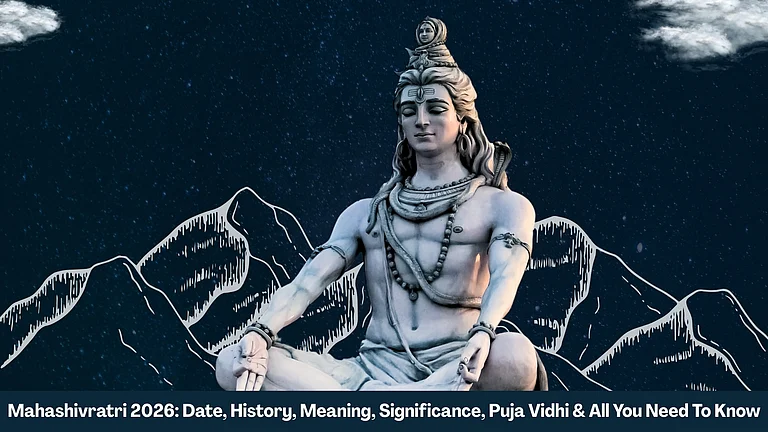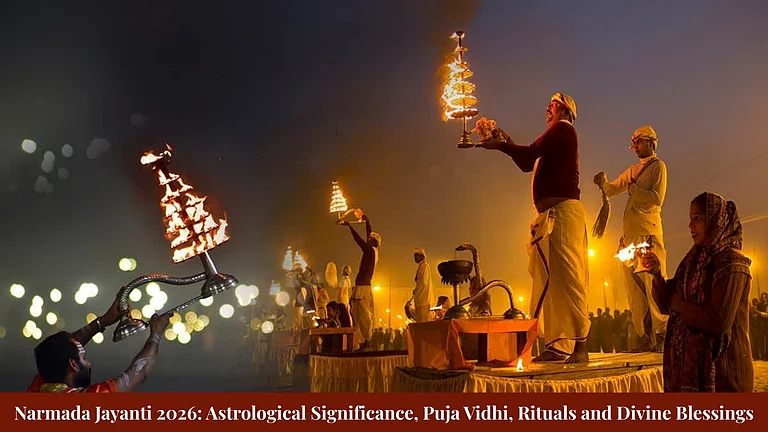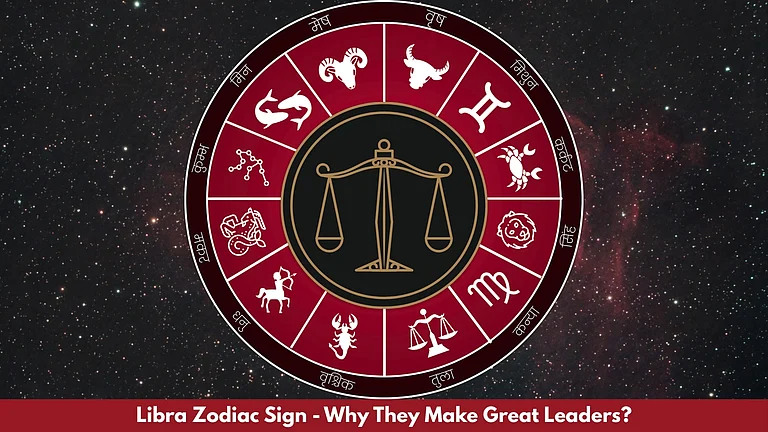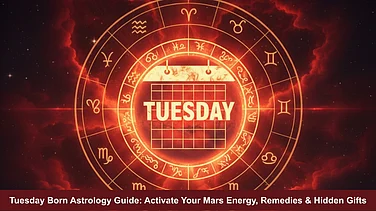Dhanteras, which is also referred to as Dhantrayodashi, is the day that inaugurates the Diwali festival, which lasts for five days. This day is considered to be one of the most fortunate days in the Hindu calendar. It is celebrated with devotion, rituals that bring prosperity, and the notion that one should invoke divine blessings in order to get wealth and well-being. Dhanteras is derived from the words "Dhan," which means "wealth," and "Teras," which means "the thirteenth day of the lunar fortnight." People celebrate Lord Dhanvantari, the divine physician, along with Goddess Lakshmi, the goddess of wealth, and Lord Kubera, the deity of treasures, on this day. Lord Dhanvantari is also worshipped on this day.
Dhanteras 2025 Date and Timing:
In 2025, Dhanteras will be celebrated on Saturday, 18 October 2025. The day falls on the Trayodashi Tithi (13th lunar day) of Krishna Paksha in the month of Kartik, according to the Hindu calendar.
Trayodashi Tithi Begins: 12:18 PM on Oct 18, 2025
Trayodashi Tithi Ends: 01:51 PM on Oct 19, 2025
Pradosh Kaal Puja Muhurat: 05:48 PM to 08:20 PM
This Pradosh Kaal (early evening period) is considered highly auspicious for performing the Lakshmi and Dhanteras Puja.
Rituals of Dhanteras:
Dhanteras is not just about shopping for gold and utensils; it is deeply rooted in spiritual practices and Vedic traditions. Devotees observe several rituals to welcome wealth and prosperity into their homes.
Cleaning and Decoration of Homes:
Cleaning and decorating the house is how the festival starts. People think that Goddess Lakshmi only goes to homes that are clean and well-lit. At the entryway, rangolis with good luck symbols like the swastika, lotus, and Lakshmi's footprints are drawn. Diyas (oil lamps) are lit in every corner to remove negativity and welcome divine energy.
Buying Precious Items:
Purchasing gold, silver, or utensils is a major custom of Dhanteras. This act is considered a sign of inviting prosperity and good fortune into the family. Many also invest in electronic appliances, property, or vehicles on this day.
Dhanteras Puja:
Families do the Lakshmi Puja in the evening to honour the goddess of wealth and Lord Kubera. A kalash full of cash, water, and betel leaves is put out as a sign of plenty. People give the gods incense, flowers, fruits, and sweets. The lighting of 13 earthen diyas is considered auspicious, symbolising protection from evil forces and misfortunes.
Lord Dhanvantari Worship:
Since the day also honours Lord Dhanvantari, people pray for good health and longevity. Some families keep medicinal herbs or Ayurvedic preparations near the altar, seeking his blessings for well-being.
Charity and Feeding the Needy:
Many followers come together to donate food, clothes, and other essentials for those who are struggling and in need on this day. People think that sharing wealth makes Goddess Lakshmi happy in more ways.
Legends Associated with Dhanteras:
Several mythological stories enrich the significance of Dhanteras:
Samudra Manthan Story:
During the churning of the ocean (Samudra Manthan), Lord Dhanvantari emerged with a pot of nectar (Amrit), symbolising health and immortality. Hence, this day is dedicated to him.
King Hima’s Son:
Another legend tells of a young prince whose horoscope predicted death by snakebite on his wedding night. His wife cleverly placed gold, silver ornaments and lit lamps at the doorway. Upon Yama, the deity of death, arriving in the form of a serpent, he was captivated by the radiance and departed without inflicting harm upon the prince. This narrative gives rise to the tradition of illuminating lamps on Dhanteras for safeguarding purposes.
Astrological Significance of Dhanteras:
According to astrology, Dhanteras are believed to receive a great deal of beneficial energy from the celestial trinity of Kubera, Dhanvantari, and Lakshmi.
Planetary Influence:
The day occurs on Krishna Paksha Trayodashi, a lunar phase associated with Lord Kubera and affluence. Conducting puja during the Pradosh Kaal amplifies the energy of Venus (Shukra), which presides over prosperity, luxury, and happiness.
Wealth and Prosperity:
Buying expensive things today is in tune with the vibrations of the planets, which means that the money you buy will grow and be safe. Astrologers often say that buying metals like gold, silver, or copper can boost the good effects of Venus and Jupiter.
Health and Longevity:
Since Dhanteras is also associated with Lord Dhanvantari, prayers for health have astrological importance. Offering tulsi leaves and Ayurvedic herbs in a puja is believed to pacify planetary imbalances that cause illness.
Karmic Balance:
Lighting diyas on this day signifies the dispelling of negative karmic influences. Individuals believe that light alleviates issues associated with malefic planets such as Saturn and Rahu, ensuring familial safety and tranquillity.
Modern-Day Relevance:
Dhanteras has evolved from being primarily focused on religious rites to encompassing social and cultural significance. It is the most hectic shopping day in India, benefiting both enterprises and households. It is regarded as a day to acquire both worldly prosperity and spiritual enrichment. Dhanteras symbolises abundance, wellness, and optimism by merging traditional customs with contemporary practices.
The 18th of October 2025 is Dhanteras, which is not only a day to get rich, but also a day to celebrate health, wealth, and safety from harm. The rituals, which have their roots in mythology and astrology, tell us that real abundance is not just material, but also spiritual and karmic. By worshipping Goddess Lakshmi, Lord Kubera, and Lord Dhanvantari, people seek blessings for balanced wealth and well-being.
This festival beautifully combines devotion, tradition, and astrology, making it one of the most significant days of the Diwali celebrations.







